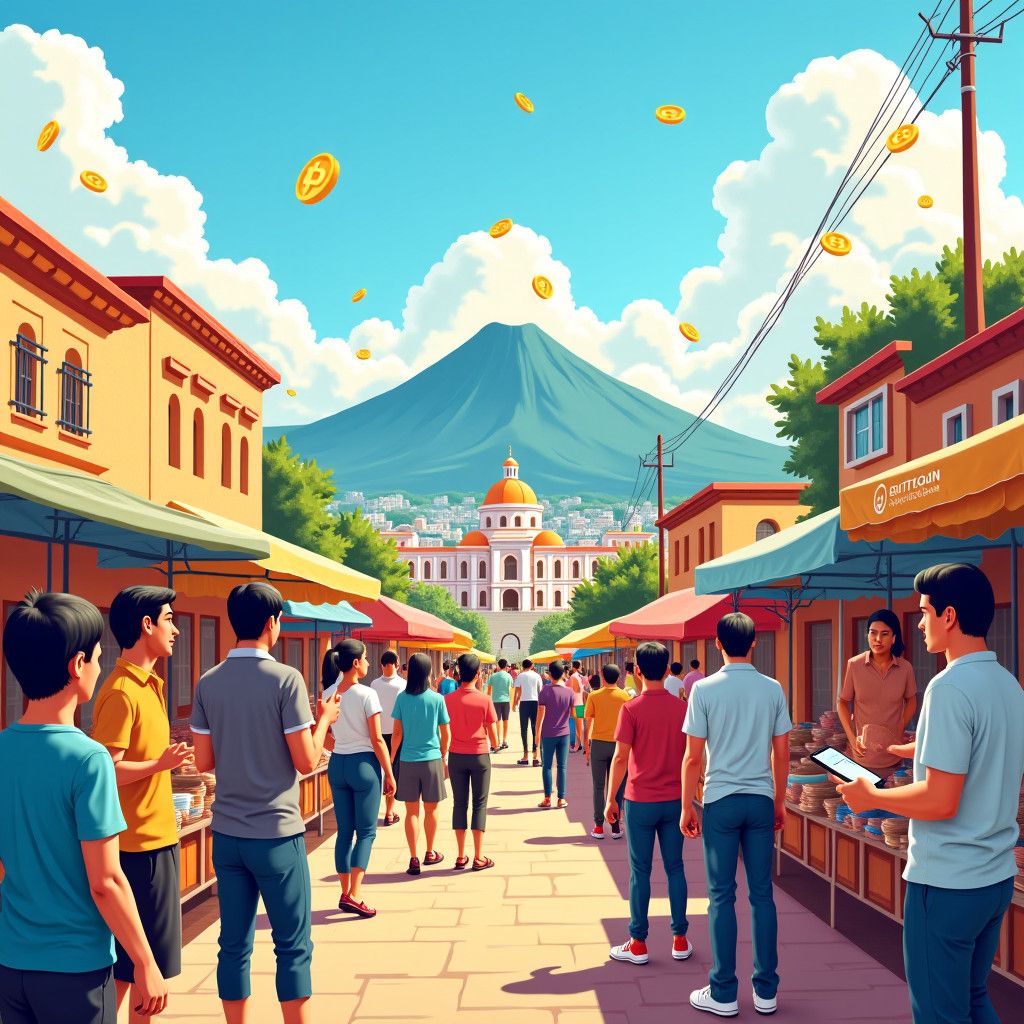In a groundbreaking move, El Salvador made headlines by becoming the first country to adopt Bitcoin as legal tender in September 2021. This bold decision, spearheaded by President Nayib Bukele, was intended not only to elevate the nation’s financial standing but also to attract foreign investment. Fast forward to 2024, and the strategy has proven not just audacious but highly profitable, as global Bitcoin prices surge, significantly benefiting the Salvadoran economy.
The country’s position in the cryptocurrency market is remarkable. El Salvador has accumulated a substantial Bitcoin reserve, reported at 5,900 BTC. This asset is expected to generate a staggering profit as the price of Bitcoin has recently eclipsed the $100,000 mark, showcasing the incredible volatility inherent in cryptocurrencies yet highlighting the potential rewards.
A Strategic Investment: Analyzing the Financial Gains
To better understand the financial implications of this strategy, consider that El Salvador initially bought Bitcoin at varying prices, with some purchases made as low as $30,000. Given the current valuation above $100,000, the government stands to make an impressive return on investment. To put this into perspective, if we look at the average cost of Bitcoin acquisition and juxtapose it with its current market value, it becomes evident that El Salvador is positioned to reap significant profits amounting to hundreds of millions of dollars.
Critically, this strategy isn’t limited to mere speculation; it is tied to a vision of transforming the national economy. By harnessing Bitcoin’s potential, El Salvador aims to facilitate remittances—a vital economic pillar where Salvadorans abroad send money back home. The use of Bitcoin may reduce transaction fees dramatically compared to traditional banking, providing a more accessible financial framework for many citizens.
Socioeconomic Impact of the Bitcoin Revolution
El Salvador’s innovative approach has also sparked broader interest in financial inclusion. In a country where traditional banking services are often limited, Bitcoin offers a decentralized alternative that can empower individuals. This empowerment comes in the form of blockchain technology, which can allow Salvadorans to store their wealth without relying solely on conventional banking systems.
Furthermore, the move has positioned El Salvador as a focal point for cryptocurrency enthusiasts and investors worldwide. As the country develops Bitcoin-friendly infrastructures, such as “Bitcoin City,” which aims to utilize geothermal energy from volcanoes to power Bitcoin mining, it captures the imagination of a global audience, potentially attracting direct foreign investments.
Challenges Ahead: Navigating the Crypto Landscape
However, the journey is fraught with challenges. The volatility of Bitcoin poses considerable risks, both for the country’s economy and for its citizens. For instance, the drastic fluctuations in Bitcoin’s value can affect government revenues ultimately sourced from Bitcoin gains. Moreover, public opinion fluctuates as well; citizens may feel anxiety over dependency on a cryptocurrency that can experience drastic shifts in value.
In response, the government has encouraged education and training initiatives to raise awareness of the opportunities and risks associated with cryptocurrency. By incrementally introducing Bitcoin into the daily lives of Salvadorans—such as through focused educational programs and public awareness campaigns—the government is striving to prepare its citizens for the digital economy.
The Future of Bitcoin in El Salvador: A Model for Success?
Considering the considerable returns on investment already achieved and the innovative measures being undertaken, El Salvador’s Bitcoin initiative could serve as a compelling case study for other nations exploring similar paths. The nation’s unique experience can act as a model, illustrating both the opportunities and risks associated with integrating cryptocurrency into national financial ecosystems.
As governments globally examine El Salvador’s evolving financial landscape, key questions emerge: Could Bitcoin become more than just a speculative asset? Will it pave the way for adoption on a global scale? These considerations are crucial for evaluating the future of national economies in an increasingly digital world.
El Salvador’s bold steps in Bitcoin adoption demonstrate a fascinating interplay of innovation and pragmatism. While there are significant risks at play, the potential for economic revitalization may serve as a guiding light for other nations seeking new avenues of financial success.
As we witness the unfolding narrative of El Salvador’s venture into the world of cryptocurrencies, it becomes increasingly clear that the decisions made today will shape the economic landscape of tomorrow.












